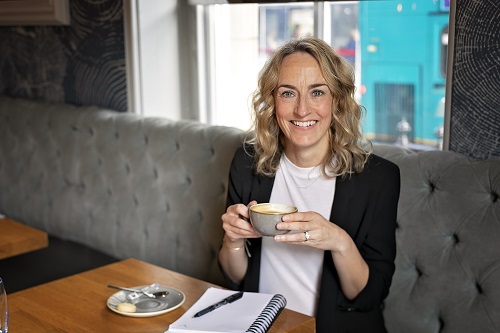
We all know how important it is to take care of our mental and physical health, but have you ever stopped to think how self-care affects your loved ones?
The very term ‘self-care’ implies that it’s all about ourselves – and in its simplest form, it is. It’s about tuning into your body and mind, figuring out what it is you need. For some, this might mean meditation, yoga and long hikes in the woods. For others, it’s about saying ‘no’ more, setting boundaries and perhaps the odd evening spent horizontal in front of Netflix.
Sometimes self-care involves other people, maybe meeting friends for coffee or even making an appointment with a therapist, but often it’s something we do for ourselves, by ourselves. This doesn’t mean that we’re the only ones benefiting from self-care.
The Ripple Effect
The way we treat ourselves has a ripple effect. It touches everyone we meet and can have incredible repercussions. Here are just a few ways self-care impacts others:
It Helps You Support Others
If you find yourself having to support other people often, whether you’re caring for an older relative, helping a friend through a tough time or mentoring an employee at work, it can be easy to feel burnt out over time.
When you’re carving out space for yourself and getting plenty of headspace, you’ll be in a much better position to support others. The phrase ‘you can’t pour from an empty cup’ is a cliche for a reason.
It Encourages You To Feel Calmer
A lot of self-care practices are designed to help reduce stress and feel calm, happy and more resilient. This, of course, spills over into your interactions with other people.
It can help you be more patient with your family, cope better with stressful conversations at work and generally be a little nicer to be around. So, every time you think to yourself, ‘I don’t have time for self-care’, keep this in mind, your loved ones will thank you for it.
It Makes You A Role-Model
When we take care of ourselves and other people see that, we’re giving them permission to do the same. Maybe you talk about self-care to your friends and family, or perhaps you share your routine on social media. Leading by example shows people it’s OK to take time for self-care and encourages them to join in.
It Encourages A Kinder Society
All of the above has a knock-on effect. Think about it – if you’re feeling rested and happy, chances are you’ll be a little bit perkier when ordering your coffee from the barista at your local cafe. This interaction might totally brighten their morning, prompting them to be more cheerful to the customer behind you.
Kindness breeds kindness. The more we look after ourselves, the more capacity we have for kindness and compassion towards others.
One of the things that can hold people back from self-care is the idea that it’s a ‘selfish’ act – a luxury that we shouldn’t prioritise. Hopefully after reading this, you’ll understand that this is very far from the truth. Self-care keeps us healthy and happy and, ultimately, this makes the people around us healthy and happy too.
If you enjoyed this post, why not also read our happy tips for self-care or 17 powerful ways to build your confidence and self-esteem.
Bio
Kat Nicholls is a writer for Counselling Directory and Happiful Magazine and a self-worth coach. Her mission, through both coaching and writing, is to help people discover their self-worth, build self-belief and up their self-care game. Twitter: @BlueJayBlog








